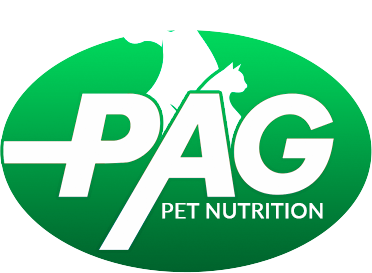
17 Jul What Vitamins Should I Give My Dog
Dogs need vitamins just like humans do. In fact, they may need more vitamins than we do because their diet is not always as varied as ours. That’s why it’s important to know which vitamins are best for your dog and how to give them to him. In this blog post, we will discuss the different nutritional types of vitamins that are available for dogs and which ones are the best for his health!
Vitamin A, Vitamin D, and Vitamin C are the most important vitamins that dogs need. They help with everything from bone and teeth health to vision and immunity. You can give your dog vitamins in a number of ways, including pill supplements, liquid drops, or even treats that are fortified with vitamins.
Vitamin A
1.Why would dog needs to take vitamin A
Vitamin A is a fat-soluble vitamin found in animal feed. There is no vitamin A in plant feed, but the beta-carotene in plant feed can be converted into vitamin A after being absorbed by dogs from eating it.
The main physiological function of vitamin A is to maintain the normal visual and mucosal epithelial cell function of dogs. If dogs lack vitamin A, they will first show discomfort in dark environment or even suffer from night blindness and dry eye disease. Dogs with this disease usually have thickened corneas and keratization, forming a foggy state, and then ulcers and perforation will occur, causing blindness in dogs in its life; moreover, the growth and development of dogs will be hindered, and their weight will become lighter and lighter.
In addition, vitamin A deficiency can also affect dog reproduction. The reproductive ability of male dogs will be weakened, while female dogs are easy to experience difficulty in conception, abortion, stillbirth, weak fetuses and blind puppies; meanwhile, puppies usually have poor resistance, diarrhea, optic nerve atrophy-induced blindness, and often lose their lives due to pneumonia.

2.What would happen if vitamin A were lacking?
The main physiological function of vitamin A is to maintain the normal visual and mucosal epithelial cell function of dogs. If dogs lack vitamin A, they will first show discomfort in dark environment or even suffer from night blindness and dry eye disease. Dogs with this disease usually have thickened corneas and keratization, forming a foggy state, and then ulcers and perforation will occur, causing blindness in dogs; moreover, the growth and development of dogs will be hindered, and their weight will become lighter and lighter.
Vitamin D
1.Why would dog needs to take vitamin D
Vitamin D is essential for maintaining calcium balance in the body and preventing deficiency-related diseases such as osteoporosis, rickets, and anemia. Although it is possible to get some vitamin D from food, the majority of this vitamint is produced when ultraviolet radiation from the sun interacts with a molecule in the skin. As a result, it is important to make sure that your dog gets plenty of time outdoors in order to maintain healthy vitamin D levels. If you are concerned that your dog is not getting enough sun exposure, talk to your veterinarian about supplementation options.
2.What would happen if dog vitamin D were lacking?
Symptoms of vitamin D deficiency include abnormal reactions in bones and teeth, which can lead to calcium deficiency. If left untreated, vitamin D deficiency can cause serious health problems. Luckily, there are several ways to prevent and treat vitamin D deficiency in dogs. Feeding them foods that are high in vitamin D, such as milk tablets, vegetables, meat, and eggs, is a good way to prevent deficiency.
Vitamin C
1.Why would dog needs to take vitamin C
Vitamin C, also known as ascorbic acid, is an essential nutrient for dogs. The dog’s body can partially synthesize vitamin C, but it is also important to include vitamin C in the diet. Generally speaking, dogs are less prone to vitamin C deficiency than other animals, unless they are puppies. This is because the growth rate of puppies is faster and their bodies can’t synthesize vitamin C as quickly as adult dogs. The main signs of vitamin C deficiency include bleeding gums, brittle blood vessels, poor resistance to infection, and poor absorption of iron. If your dog shows any of these symptoms, it’s important to talk to your veterinarian and make sure they are getting enough vitamin C in their diet.
2.What would happen if vitamin C were lacking?
Vitamin C is an essential nutrient for dogs, and a deficiency can lead to a number of health problems, including scurvy. While most dogs get enough vitamin C from their diet, some may need to supplement with liver, fruits, vegetables, or other foods rich in this nutrient. Vitamin C deficiency is most commonly seen in puppies and young dogs, as they are more likely to be fed diets that are low in this nutrient. Symptoms of vitamin C deficiency include lethargy, poor appetite, weight loss, and weak muscles. If left untreated, vitamin C deficiency can lead to scurvy, which can be fatal. Therefore, it is important to ensure that your dog is getting enough vitamin C in their diet.

Dog supplements are essential for addressing your pet’s nutritional needs and ensuring they have a complete and balanced diet. These supplements can provide crucial nutrients that may be missing from their regular meals, leading to benefits like a shiny coat and overall health. It’s important to recognize that even high-quality dog food may not cover all of your pet’s nutritional requirements. Therefore, dog supplements can fill in the gaps and help your furry friend thrive.Vitamin deficiencies can lead to specific health problems, so it’s important to make sure your dog is getting all the vitamins they need. There are a variety of dog vitamins on the market, so you can choose the one that best suits your dog’s needs. Be sure to talk to your veterinarian before starting any new supplement, and always follow the recommended dosage. With the right vitamins, the experts of vet can be sure your dog will stay healthy and happy.

